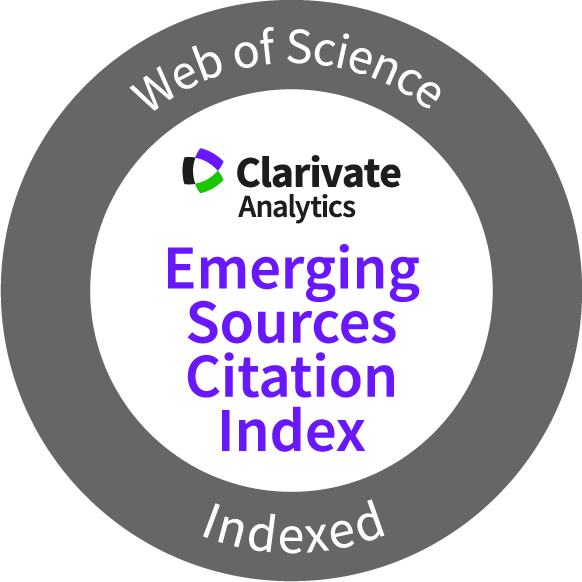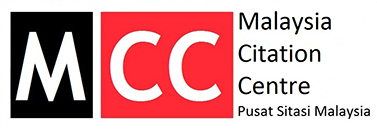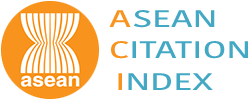Forecasting Green Sea Turtle (Chelonia mydas) Landing in Sarawak Using Grey Model
Keywords:
Green sea turtle, grey model, grey system, Sarawak, turtle landing, time seriesAbstract
Green sea turtles, known scientifically as Chelonia mydas, prefer to nest on specific sandy beaches in Sarawak, particularly within the Sarawak Turtle Islands (STI). The number of turtles landing, among other variables (number of eggs collected, eggs incubated, and eggs hatched) is an important element in assessing the population size in Sarawak. However, modeling and predicting the number of turtles landing presents challenges due to limited data availability, resulting in less accurate forecasts for medium and long-term periods. To overcome this problem, this study presents a Grey Model (GM) approach, leveraging its capacity to effectively model systems with limited data, irregular patterns, and a lack of prior knowledge. Using data from 1949 to 2016, GM (1,1) was found to be the most suitable model for the given dataset, exhibiting the lowest Root Mean Square Error (RMSE) and Mean Absolute Error (MAE) as compared to other statistical models such as Autoregressive Integrated Moving Average (ARIMA), Long Short-Term Memory (LSTM) and Exponential Smoothing. The model also suggested that the current conditions will likely increase turtle landings. This approach will find useful applications in evaluating the conservation status of the species.
Downloads
Metrics
References
Abd Mutalib, A.H. & Fadzly, N. 2015. Assessing hatchery management as a conservation tool for sea turtles: A case study in Setiu, Terengganu. Ocean & Coastal Management, 113: 47-53. DOI: https://doi.org/10.1016/j.ocecoaman.2015.05.010
Abd Mutalib, A.H., Fadzly, N., Ahmad, A., & Nasir, N. 2015. Understanding nesting ecology and behaviour of green marine turtles at Setiu, Terengganu, Malaysia. Marine Ecology, 36(4): 1003-1012. DOI: https://doi.org/10.1111/maec.12197
Ayvaz, B., Kusakci, A.O. & Temur, G.T. 2017. Energy-related CO2 emission forecast for Turkey and Europe and Eurasia: A discrete grey model approach. Grey Systems: Theory and Application, 7(3): 436-452. DOI: https://doi.org/10.1108/GS-08-2017-0031
Bali, J., Liew, H.C., Chan, E.H. & Tisen, O.B. 2000. Long distance migration of green turtles from the Sarawak Turtle Islands, Malaysia. In: Proceeding of the Twentieth Annual Symposium on Sea Turtle Biology and Conservation. Orlando, Florida, USA, pp. 32-33.
Fan, J.J., Yu, W.J., Zhang, T. & Gao, Y.L. 2019. Carbon emission measurement of Animal husbandry in Gansu Province based on grey forecasting model. Computer Knowledge and Technology, 15(2): 219-220.
Hassan, R. & Yahya, N.K. 2022. Green Sea Turtle (Chelonia mydas): A historical review with relevance to population size in Sarawak. International Journal of Biology and Biomedical Engineering, 16:221-232. DOI: https://doi.org/10.46300/91011.2022.16.28
Hu, X.B. & Chen, W.K. 2021. Influencing factors of grain yield in Sichuan and forecast analysis of supply and demand in the '14th Five-Year Plan' based on GM model. Journal of Chinese Agricultural Mechanization, 42(6): 130-136.
Jensen, M.P., Pilcher, N. & FitzSimmons, N.N. 2016. Genetic markers provide insight on origins of immature green turtles Chelonia mydas with biased sex ratios at foraging grounds in Sabah, Malaysia. Endangered Species Research, 31: 191-201. DOI: https://doi.org/10.3354/esr00763
Joseph, J. & Nishizawa, H. 2016. Genetic structure and diversity of green turtles (Chelonia mydas) from two rookeries in the South China Sea. Journal of Sustainability Science and Management, 41-47.
Joseph, J. & Shaw, P.W. 2011. Multiple paternity in egg clutches of hawksbill turtles (Eretmochelys imbricata). Conservation Genetics, 12: 601-605. DOI: https://doi.org/10.1007/s10592-010-0168-7
Joseph, J., Ali, S.N. & Hing, L.S. 2014. Heavy metal compositions in Green turtle (Chelonia mydas) eggs from nesting beaches in Peninsular Malaysia. Asian Journal of Conservation Biology, 3(1): 83-87.
Joseph, J., Chong, J. & Shaw, P. 2017. Multiple paternity in egg clutches of green turtles in Redang Island and Sabah Turtle Islands Park, Malaysia. Journal of Sustainability Science and Management, 12(1): 12-22.
Joseph, J., Nishizawa, H., Arshaad, W.M., Kadir, S.A.S., Jaaman, S.A., Bali, J., Jamaludin, N.A. & Katoh, M. 2016. Genetic stock compositions and natal origin of green turtle (Chelonia mydas) foraging at Brunei Bay. Global Ecology and Conservation, 6:16-24. DOI: https://doi.org/10.1016/j.gecco.2016.01.003
Leh, C.M., Poon, S.K. & Siew, Y.C. 1985. Temperature-related phenomena affecting the sex of green turtle (Chelonia mydas) hatchlings in the Sarawak turtle islands. Sarawak Museum Journal, 34(55): 183-193.
Li, L.B. 2011. Prediction and suggestion of aquatic products output in Ningbo. Chinese Fisheries Economics, 29(3): 114-117.
Lu, Q. & Chen, X.J. 2021. Development of Chinese fishery industry in 40 years of reform and opening up and production forecast in the 14th five-year plan. Journal of Shanghai Ocean University, 30(2): 339-347.
Mortimer, J. A. 1990. Recommendations for the management of the Green Turtle (Chelonia mydas) Population Nesting at the Turtle Islands of Sarawak. World Wildlife Fund Malaysia, Kuala Lumpur.
Nishizawa, H., Joseph, J. & Chong, Y.K. 2016. Spatio-temporal patterns of mitochondrial DNA variation in hawksbill turtles (Eretmochelys imbricata) in Southeast Asia. Journal of Experimental Marine Biology and Ecology, 474:164-170. DOI: https://doi.org/10.1016/j.jembe.2015.10.015
Pilcher, N. 2010. Population structure and growth of immature green turtles at Mantanani, Sabah, Malaysia. Journal of Herpetology, 44(1): 168-171. DOI: https://doi.org/10.1670/08-115.1
Quartey-Papafio, T.K., Javed, S.A. & Liu, S. 2021. Forecasting cocoa production of six major producers through ARIMA and grey models. Grey Systems: Theory and Application, 11(3), 434-462. DOI: https://doi.org/10.1108/GS-04-2020-0050
Tinsung, F.G., Palaniappan, P.M., Vairappan, C.S., Ahmad, A.H., Buis, H. & Maidin, N. 2011. A preliminary study of population dynamics of green turtles (Chelonia mydas) of Sipadan, Malaysia. Borneo Science: 28, 86-90.
Tisen, O.B., Bali, J., Mosier, A., Foley, A. & Brost, B. 2002. Current status of marine turtle conservation programmes in Sarawak, Malaysia. In: Proceeding of the Twentieth Annual Symposium on Sea Turtle Biology and Conservation. Orlando, Florida, USA, pp. 12-14.
Wang, S., Dai, J., Zhao, Q. & Cui, M. 2017. Application of grey systems in predicting the degree of cotton spider mite infestations. Grey Systems: Theory and Application, 7(3): 353-364. DOI: https://doi.org/10.1108/GS-05-2017-0014
Wang, Y. & Si, Q. 2024. Forecasting Chinese carbon emission intensity based on the interactive effect GM (1, N) power model. Grey Systems: Theory and Application, 14(1): 21-48. DOI: https://doi.org/10.1108/GS-02-2023-0015
Wang, Z.X., Dang, Y.G. & Pei, L.L. 2012. Grey clustering evaluation method based on relative membership degree. Statistics and Decision, 3: 100-102.
Xia, X.L., Qi JianShuang, Q.J., Gu LiMin, G.L., Mu XinYuan, M.X., Ma ZhiYan, M.Z., Ding Yong, D.Y. & Zhang LanXun, Z.L. 2019. Comprehensive evaluation of maize cultivars suitable for mechanical kernel harvest based on entropy DTOPSIS mode and grey situation decision methods. Journal of Southern Agricultural, 50(9): 1953-1959.
Xie, M.Y. & Chen, X.J. 2019. Advances in the application of bibliometrics-based grey system theory in fisheries science. Transactions of Oceanology and Limnology, 170(5): 117-126.
Yahya, N., Hassan, R. & Husaini, A.A.S.A. 2012. Molecular phylogeny of Sarawak Green Sea Turtle (Chelonia mydas) inferred by the D-loop region and 16S rRNA gene. Borneo Journal of Resource Science and Technology, 2(1): 20-27. DOI: https://doi.org/10.33736/bjrst.269.2012
Yang, J.W., Xiao, X.P. & Guo, J.H. 2015. Gray prediction model of normal distribution interval grey number. Control and Decision, 30(9): 1711-1716.
Published
How to Cite
Issue
Section
Any reproduction of figures, tables and illustrations must obtain written permission from the Chief Editor (wicki@ukm.edu.my). No part of the journal may be reproduced without the editor’s permission




















